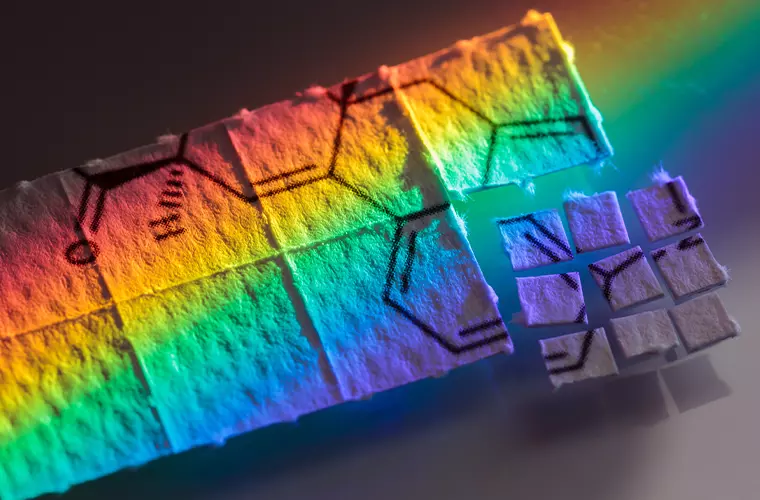In an unprecedented move, the U.S. Food and Drug Administration (FDA) has granted a “breakthrough therapy” designation to an LSD-based drug, marking a historic moment in the therapeutic use of psychedelic drugs to treat a variety of mental health disorders.
The groundbreaking development further highlights the therapeutic potential of psychedelics in mental health care, possibly paving the way for psychedelic therapy to become a mainstream treatment for conditions like general anxiety disorder (GAD), post-traumatic stress (PTSD), and depression.
In recent years, the FDA has recognized the potential of psychedelic substances in treating mental health conditions by awarding breakthrough therapy designations to several hallucinogenic compounds. These include psilocybin, found in “magic mushrooms,” for major depressive disorder, and MDMA, also known as “ecstasy” or “molly,” for post-traumatic stress disorder (PTSD) symptoms.
However, this latest endorsement marks the first instance of the FDA formally recognizing the therapeutic benefits of Lysergic acid diethylamide, commonly known as “LSD” or informally as “acid.”
During clinical trials, the drug MM120 (lysergide d-tartrate), developed by Mind Medicine Inc. (MindMed), demonstrated remarkable efficacy, exhibiting rapid and sustained improvement in patients suffering from general anxiety disorder (GAD).
According to the trial results, a single dose of MM120 led to a 48% remission rate in GAD symptoms at 12 weeks post-administration, significantly outperforming today’s standard care approaches. Furthermore, 65% of patients experienced marked clinical improvement within the first three months, a testament to the drug’s potent and enduring potential.
Dr. David Feifel, a Psychiatry Professor at the University of California, San Diego, and an investigator in the MM120 study, highlighted the significance of trial results and LSD’s promise in treating mental health disorders.
“I’ve conducted clinical research studies in psychiatry for over two decades and have seen studies of many drugs under development for the treatment of anxiety,” said Dr. Feifel in a statement issued by MindMed. “That MM120 exhibited rapid and robust efficacy, solidly sustained for 12 weeks after a single dose, is truly remarkable.”
The FDA’s breakthrough designation not only recognizes MM120’s efficacy but also facilitates a more collaborative and expedited review process, paving the way for LSD to become an accepted mainstream treatment.
Dr. Daniel Karlin, an assistant professor of psychiatry at Tufts University School of Medicine in Boston and Chief Medical Officer for MindMed, explained how the FDA’s breakthrough designation paves the way for MM120 to become an accepted mainstream treatment.
“[The designation] is an offer from the agency to engage more closely in drug development,” Dr. Daniel Karlin, an assistant professor of psychiatry at Tufts University School of Medicine in Boston and Chief Medical Officer for MindMed, explained. “It affects timelines of response and our ability to get more interactions with the agency so that we can be sure that we’re in lockstep agreement as we move forward.”
The American Psychiatric Association defines generalized anxiety disorder (GAD) as having “excessive anxiety and worry (apprehensive expectation), occurring more days than not for at least 6 months.” Sufferers of GAD can experience a variety of symptoms, including restlessness, fatigue, difficulty concentrating, irritability, muscle tension, and sleep disturbances.
Results from Harvard University’s National Comorbidity Survey suggest that at least 5.7% of U.S. adults will experience anxiety disorder at some point in their lives. The World Health Organization estimates that nearly 4% of the global population, or 301 million people, currently suffer from acute anxiety issues, making generalized anxiety disorder the most common of all mental disorders.
Despite its prevalence, treating anxiety disorder has proven to be difficult and is often necessitated by a long and arduous process of trial and error to find effective relief.
A 2020 meta-analysis found that only 60-85% of patients with anxiety disorders reported at least a 50% improvement in their symptoms under current treatment options. Of this, only about 50% of sufferers reported achieving “recovery” from excessive anxiety issues.
“There is evidence to suggest that patients with anxiety disorders, in particular generalized anxiety disorder (GAD) and [social anxiety disorder] SAD have high rates of recurrence and/or experience persistent anxiety symptoms,” researchers wrote.
The current treatment paradigm for anxiety disorders is heavily reliant on a mix of cognitive behavioral therapy and pharmacotherapy, including SSRIs and benzodiazepines.
Researchers concluded that there is a need for more exploration into innovative mental health treatments, including the use of dissociative anesthetics like Ketamine, psychedelics, and cannabinoids.
“Unfortunately, many of the treatments that are currently being investigated are simply modifications of already approved treatments,” the authors wrote. “Overall, the progression of current and future psychopharmacology research in anxiety disorders suggests that further expansion in research of these novel pathways and larger-scale studies of promising agents with positive results from smaller trials is needed.”
The breakthrough designation of LSD as a potential treatment now offers new hope for individuals with anxiety disorder, promising quick and enduring relief without the lengthy and expensive process of finding the proper treatment.
Most promisingly, MM120’s single-dose regimen could potentially revolutionize the way mental health disorders are treated, moving away from continuous medication towards a more sustainable and patient-friendly approach.
While recent trials were primarily focused on examining LSD to treat anxiety disorders, results showed that MM120 also improved symptoms of clinical depression. “We saw rapid and robust improvement on depression symptoms in people — depression and anxiety have overlapping disease definitions,” Dr. Karlin elaborated.
According to MindMed, adverse side-effects noted by participants during phase II trials were mild to moderate and included “hallucinations, euphoric mood, anxiety, abnormal thinking, headache, paresthesia, dizziness, tremor, nausea, vomiting, feeling abnormal, mydriasis and hyperhidrosis.”
Researchers said these adverse effects were not long-lasting, only occurring on the day the drug was administered, and were “consistent with expected acute effects of the study drug.”
The FDA’s approval of LSD and other psychedelics is particularly significant given the historical stigma surrounding the mind-altering substances. For decades, the therapeutic potential of these substances was overshadowed by their association with recreational use and countercultural movements.
The FDA’s acknowledgment of MM120’s benefits marks a continued shift in the perception of psychedelics, recognizing their value as powerful tools in mental health treatment.
MM120 will now progress through the standard FDA approval process into phase III clinical trials.
In Phase III clinical trials, MM120 will be given to a significantly larger group of patients, ranging from several hundred to several thousand, suffering from generalized anxiety disorder. This stage of massive testing will provide data on a drug’s safety and efficacy.
Should MM120 successfully complete Phase III clinical trials, MindMed will be positioned to seek FDA approval for the drug’s commercial sale, potentially marking it as the first-ever FDA-approved LSD-based treatment for mental disorders.
Dr. Feifel, considering the possibility of MM120 becoming the first FDA-approved LSD therapy, said, “These results suggest the potential MM120 has in the treatment of anxiety, and those of us who struggle every day to alleviate anxiety in our patients look forward to seeing results from future Phase 3 trials.”
Tim McMillan is a retired law enforcement executive, investigative reporter and co-founder of The Debrief. His writing typically focuses on defense, national security, the Intelligence Community and topics related to psychology. You can follow Tim on Twitter: @LtTimMcMillan. Tim can be reached by email: tim@thedebrief.org or through encrypted email: LtTimMcMillan@protonmail.com

